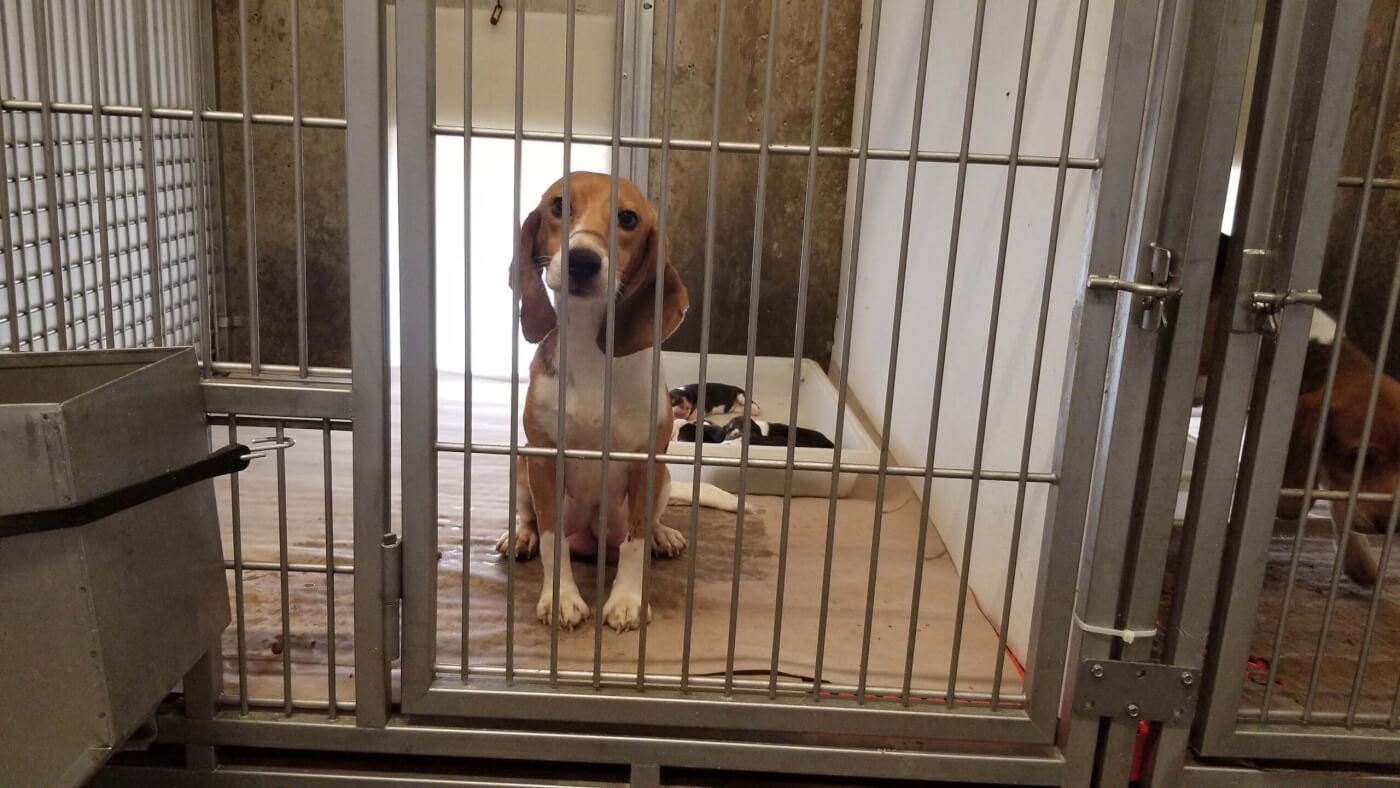
Melbourne Cup: 10 Things You Need to Know About Horse Racing
Whatever the results of this year’s Melbourne Cup, there’s one thing that you can bet on with confidence – horses will suffer because of this unethical spectacle in Flemington. Please consider the following information:

1. Horses die on racetracks all the time. During the last racing year, 139 of them died on Australian racetracks. Their deaths were traumatic and frightening, a stomach-churning mess of tangled limbs, fractured bones, and broken spines.
2. Hundreds of racehorses are being sent to Australian abattoirs. The ABC’s 7.30 program has revealed that around 300 horses used for racing went through a single facility, Meramist Abattoir in Queensland, in just 22 days. They had won a total of almost $5 million in prize money.
3. Australian horses sold to South Korea end up on dinner tables. A PETA exposé found that Australian horses sold to the South Korean racing industry usually end up being slaughtered for meat. Even the stallion Street Cry – who sired Australian racing legend Winx – fathered a foal who was killed for meat in South Korea.
4. Horses are often on drugs. Tired animals are typically over-medicated to keep them racing when they should be recuperating from injuries. Trainers often use a regimen of anti-inflammatory drugs, painkillers, sedatives, hormones, diuretics, muscle relaxants, and other medications to mask injuries and enhance performance, making horses vulnerable to breakdown.
5. It’s common for horses to bleed from the lungs. The blood that pours from their nostrils is caused by a condition called “exercise-induced pulmonary haemorrhaging” or, in other words, bleeding from the capillaries of the lungs. Researchers at the University of Melbourne discovered that more than half of the horses used for racing they studied had blood in their windpipes. This condition isn’t normal. It’s a sign that the animals are being run too hard, beyond what their bodies can withstand.
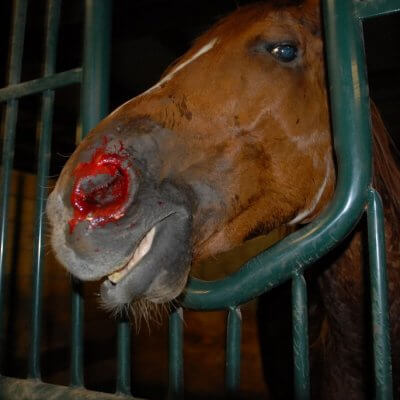
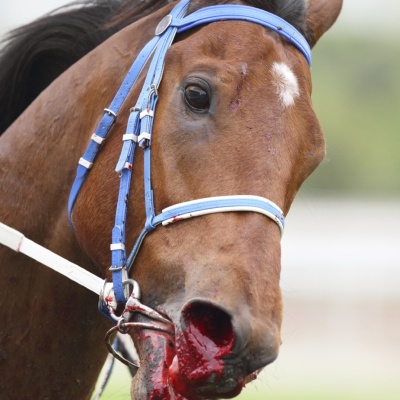
6. Horses suffer from stomach ulcers. Studies conducted in both Sydney and the US have found that more than 85 per cent of Thoroughbreds used for racing had lesions in their stomach lining.
7. Horses are whipped to the finish line. Just like humans, they can feel a fly land on their skin, so you can imagine their pain when they’re repeatedly whipped. Horses used for racing in Australia can be legally whipped 18 times per race, which is 10 more strikes than can be inflicted on their counterparts in the UK. Only in racing is beating an animal considered legal.
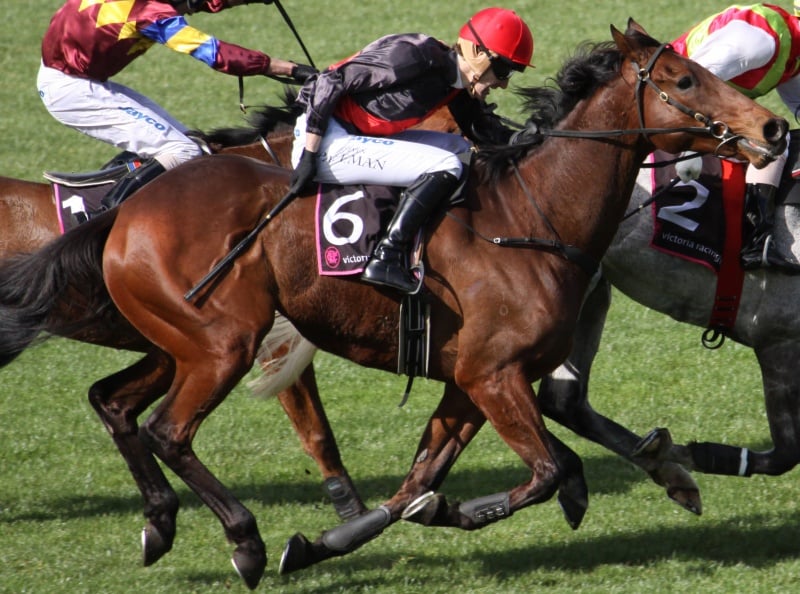
8. Horses are made to race when they’re too young. They’re not skeletally mature enough to do so until around 5 years of age. Heartbreakingly, many animals may begin to race when they’re barely more than babies, simply so patrons can see a return on their investment earlier. A study of 2- and 3-year-old Thoroughbreds used for racing reported that 85% suffered from at least one episode of illness or injury.
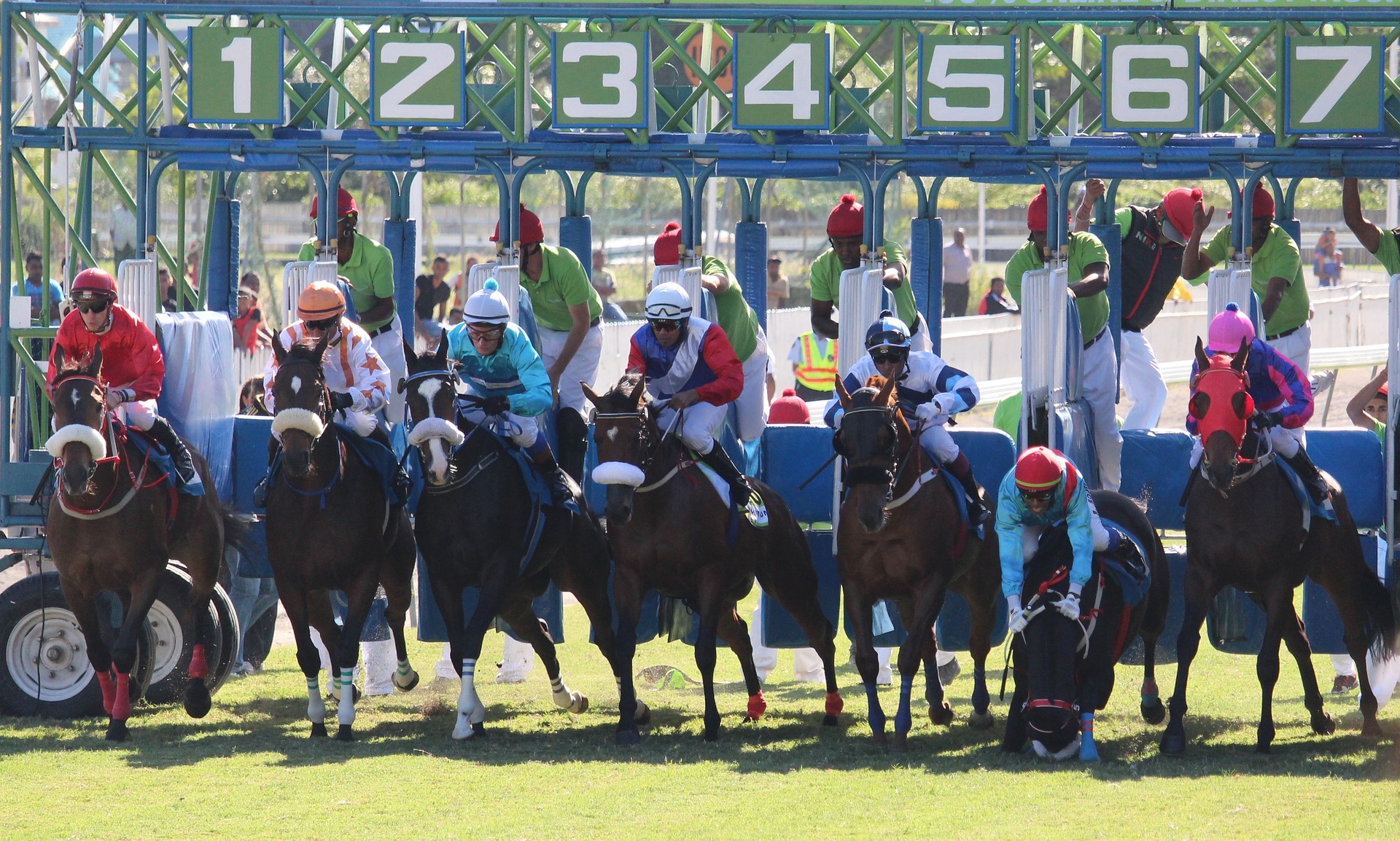
9. Training methods can be cruel. In 2019, police charged Melbourne Cup-winning horse trainer Darren Weir and two other men with cruelty to animals. Weir was charged with a total of nine offences including three counts of “engaging in the torturing, abusing, overworking and terrifying” of a racehorse and three counts of “causing unreasonable pain or suffering”.
10. Horses’ tongues are tied for “performance”. Yes, you read that correctly. More than 20% of Australian horses are racing with their tongues tied to their lower jaw.
The last thing you need to know is that horse racing is all about money. Owners of horses in the Melbourne Cup often mistake their love of money and glory for a love of the animals. If they truly loved them, they wouldn’t put them through any of this.
People who care about horses are turning their backs on the Melbourne Cup and every other race in which horses are being run to death.
This cruelty will end only when we all realise there is no such thing as a “harmless flutter” when it comes to funding the cruel and exploitative horse-racing industry.
Please help spread the word about the cruelty of horse racing:
Animals Are Suffering in Laboratories – Help Save Them Now
